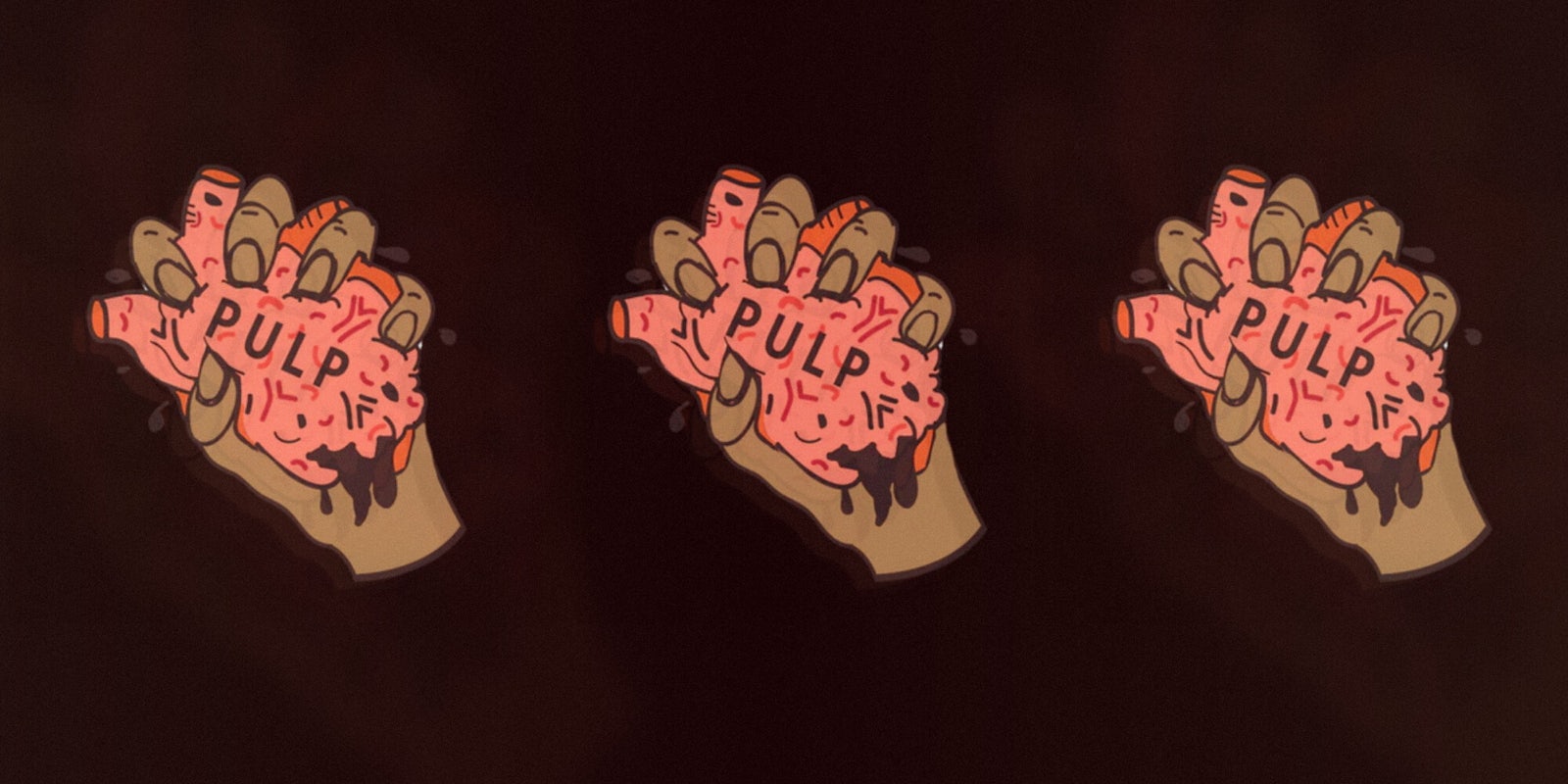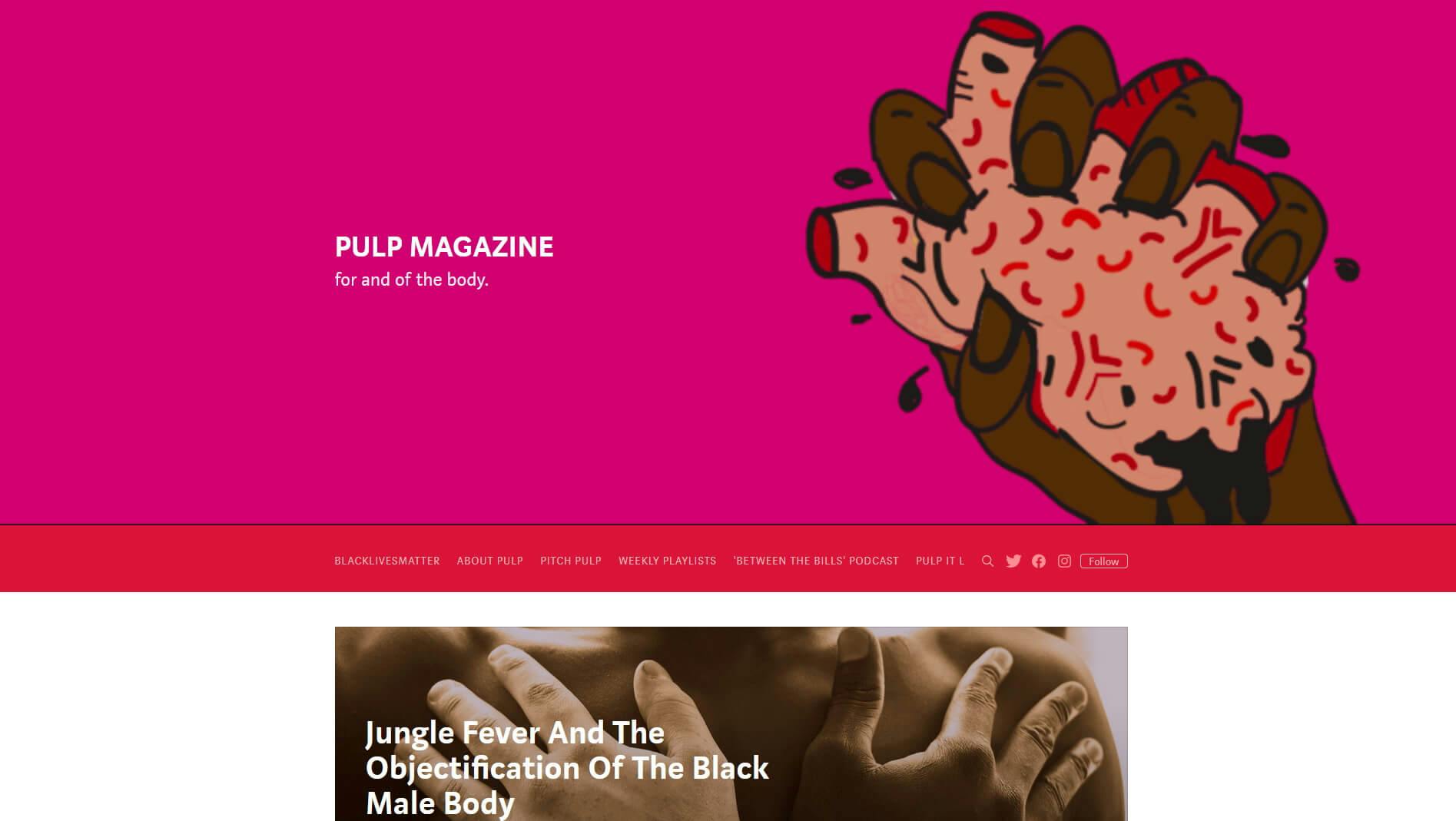How do we destigmatize and celebrate bodies of all kinds, especially queer, trans, Black, brown, and sex workers’ bodies? Pulp magazine is seeking the answers, and it’s turning to Kickstarter for a new education platform built to help dismantle oppressive thinking around desire, sex, and bodies.
Introducing Pulp Public School, an upcoming online course system where annual subscribers can attend readings and courses on sexuality, feminist art, and more. The program will offer both live classes and pre-recorded workshops, as well as “unlimited access” to an “incredible roster of educators and artists.” It’s like MasterClass for dismantling patriarchy and building community.
“PULP Public School will be covering five pillars: sexuality, writing/art (craft), digital publishing (industry/trade), wellness, and identity. In PPS, writers, artists, activists, and educators will share their expertise in online lectures and workshops to a paying community for a living wage, operating on a sliding scale,” the site’s Kickstarter writes. “PULP Public School will contain culturally-responsive pedagogy as a response to a system that is inherently designed to serve the mainstays of current power, i.e., the straight, white, able-bodied men of the world.”
Pulp magazine was created in August by Ravishly and the Establishment founder Katie Tandy and poet July Westhale. The publication focuses primarily on sex, sexuality, and reproductive rights “because our bodies are still—ever and always and as far as any of us can peer into the goddamn future—criminalized, stigmatized, silenced, and suffocated.” The site takes strides to make room for queer writers, trans people, sex workers, Black voices, and disabled folks, among many other groups. Stand-out articles include Mackenzi Fife’s “Childhood Masturbation And The Reclamation Of The Self,” “The Un-Beddability Of Brown Dudes” by Hemanth Nalamothu, and Taneasha White’s “How Can We Say Yes If We Can’t Say No?”
One of Pulp magazine’s pieces even has legendary singer Lizzo’s support; in one Instagram Story post, she praised “How We’ve Normalized Sexual Coercion And How To Flip The Script” by Steph Auteri, saying the piece reminds her “why [she makes] this music.” “Fuck the clout or the hype,” Lizzo wrote. She’s “in it for the greater good.”
Initially, Pulp magazine received one-year’s worth of funding through the online publishing platform Medium. After COVID-19 introduced the ongoing economic downturn, Medium declined to renew Pulp’s contract with the company. This is particularly unfortunate given COVID-19 “disproportionately affects vulnerable communities” such as queer, trans, Black, disabled, and impoverished people, Pulp warns. Now, Pulp magazine is turning to crowdfunding in order to create a “sustainable, ethical online media presence” that provides educational resources available virtually.
“Pulp is important not only because there’s still a woeful lack of representation in diverse bylines, but also a dearth in the kind of content considered important,” Westhale says in the campaign’s video. “Stories that intersect sex with race, gender, ability, class, and sexuality, for example.”
Pulp magazine’s Kickstarter ends on Saturday, June 27. As of this article’s publication, the site has 60 backers with just over 50% pledged to its $10,000 goal. Visit the campaign’s page to back the project.
The Daily Dot reached out to Pulp magazine for comment.
READ MORE:


